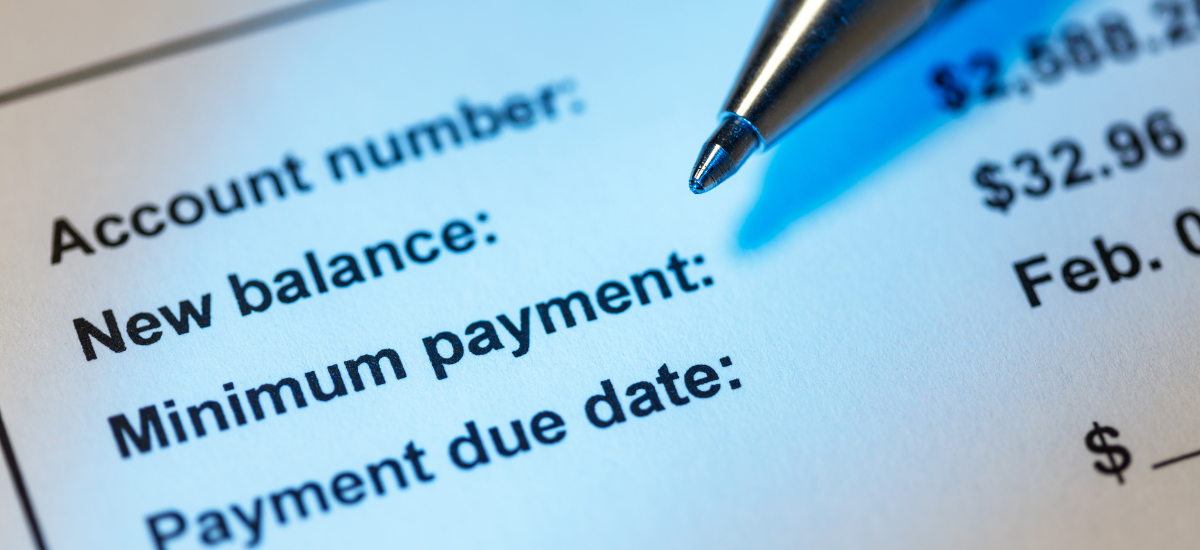5 Mistakes to Avoid for a Healthy Credit Score

- Posted on May 06, 2022
Credit is a vital aspect of our financial lives. It can impact everything from interest rates on loans, job opportunities, and even our ability to rent an apartment. However, despite the significance of maintaining good credit, many individuals unintentionally make mistakes that can negatively impact their credit scores. In this article, we’ll explore five common credit mistakes people make and provide actionable tips on how to avoid them.
Mistake 1: Not reviewing your credit card statements
One of the most common mistakes people make is not reviewing their credit reports and monthly statements. Although it may be tempting to make payments and move on, it’s essential to review your statements every month to ensure that all the transactions are accurate. Many people think credit fraud only happens in significant amounts, but it can also occur in small transactions. Reviewing your statements and reports can prevent errors or fraudulent activity that could negatively impact your credit score.
Mistake 2: Carrying a balance
Many people believe that carrying a balance on their credit card will improve their credit score. However, this is far from the truth. Maintaining a balance hurts your credit score more than it helps, and the interest charges cost you much more in the long run.
Owing a large balance or maxing out your credit card signals that you’re overleveraged or dependent on debt—both signs of risky behavior to lenders, even if you pay on time.
It’s also important to note that a “large amount” is not defined by a dollar amount and entirely depends on your total credit limit. Therefore, your credit utilization ratio (the amount of credit you use relative to your total credit limit) matters most. A high credit utilization ratio can negatively impact your credit score, so it’s essential to keep your credit utilization ratio low by paying off your balance in full each month.
Mistake 3: Only making the minimum payments
Making only minimum payments on your credit card is a common mistake that can negatively impact your financial health. Although paying the minimum amount due each month seems more manageable, you will pay significantly more interest charges over time, and it will take much longer to pay off your balance. By consistently paying as much as you can each month, you can reduce your balance faster and save money on interest charges.
Mistake 4: Rejecting a pre-approved limit increase
If you have received a pre-approved limit increase offer from your credit card issuer, accepting it can have certain benefits. By increasing your credit limit, you will have more purchasing power available, which can be especially useful in emergencies or for significant expenses. Additionally, having a higher credit limit can positively impact your credit score by lowering your credit utilization ratio, which is the amount of credit you’re using compared to the amount of credit available. However, using this increased limit responsibly and only spending within your means is essential, as this can lead to debt and financial trouble.
Mistake 5: Not knowing your APR and fees
To effectively manage your credit, you must be aware of the Annual Purchase Rates (APR) and fees associated with your credit cards. Don’t be swayed by attractive interest rates or fees when applying for credit, as these can often be misleading. To help you better understand APR and other fees, we’ve compiled a list of standard terms:
- Annual fee: This is the charge you’ll pay each year for having the card.
- Late payment fee: If you miss a payment, you’ll incur a fee of up to $29 for the first time. If you continue to make late payments within six billing cycles, the fee will increase to $40.
- Balance transfer fee: Any debt transfer comes with a fee ranging from 3% to 5%.
- Foreign transaction fee: If you make purchases outside the U.S., expect an additional cost of around 3% per transaction.
- Purchase APR: This is the yearly interest rate you’ll be charged on your purchases if you carry a balance month-to-month.
- Balance transfer APR: Similar to purchase APR, this interest rate applies to balance transfers.
- Penalty APR: If you pay your balance late, you may be charged a higher interest rate than your regular APR.
A strong credit score is crucial for financial stability, yet it’s easy to make mistakes that can negatively impact it. By avoiding these common credit mistakes and taking proactive steps to manage your credit, you can help ensure your credit score remains healthy and robust.
Need financial advice?
Check out our previous blog post Beware of These Hidden Costs When Purchasing Your First Home. In addition, if you need personalized financial advice, our team is always here to help—contact us today to book an appointment!



